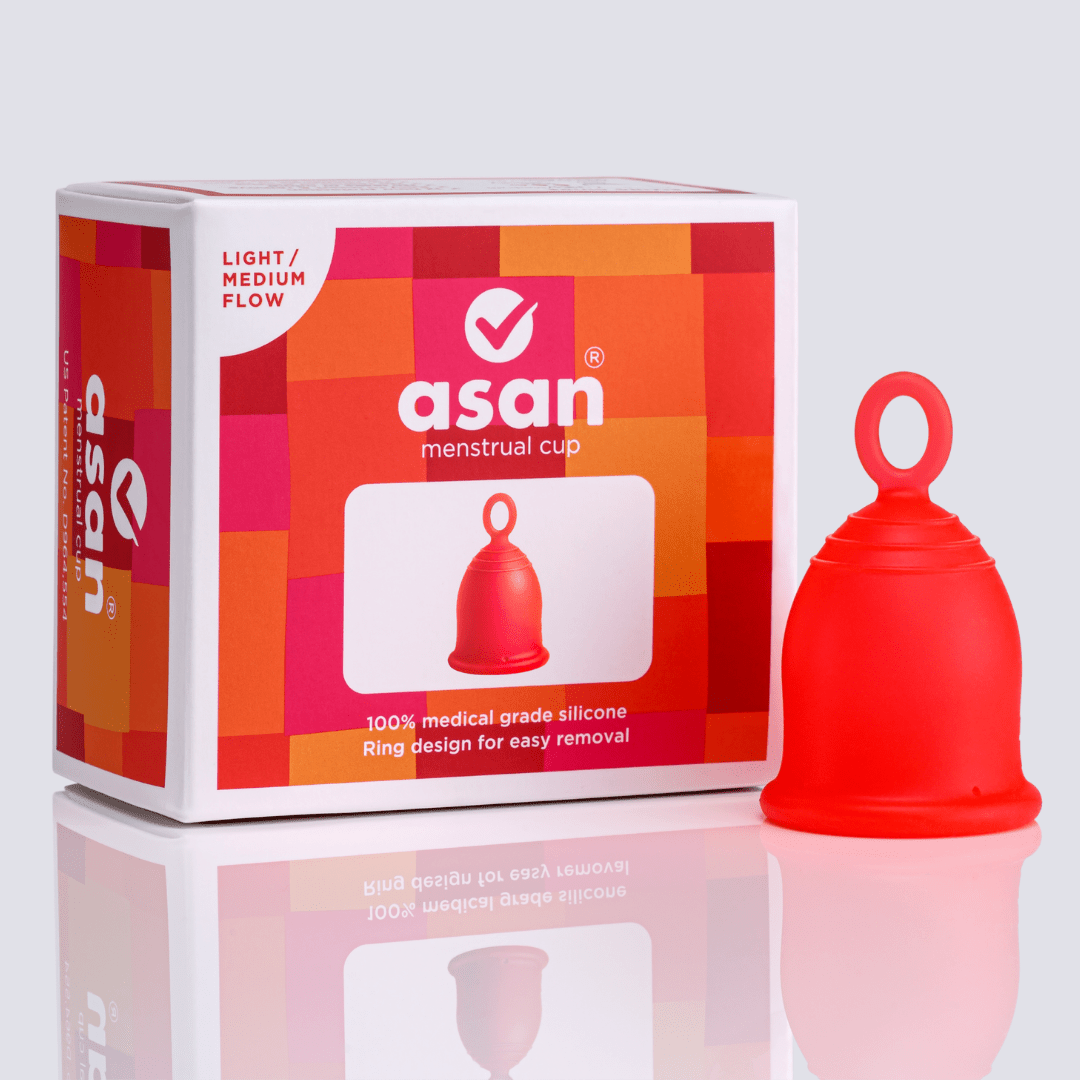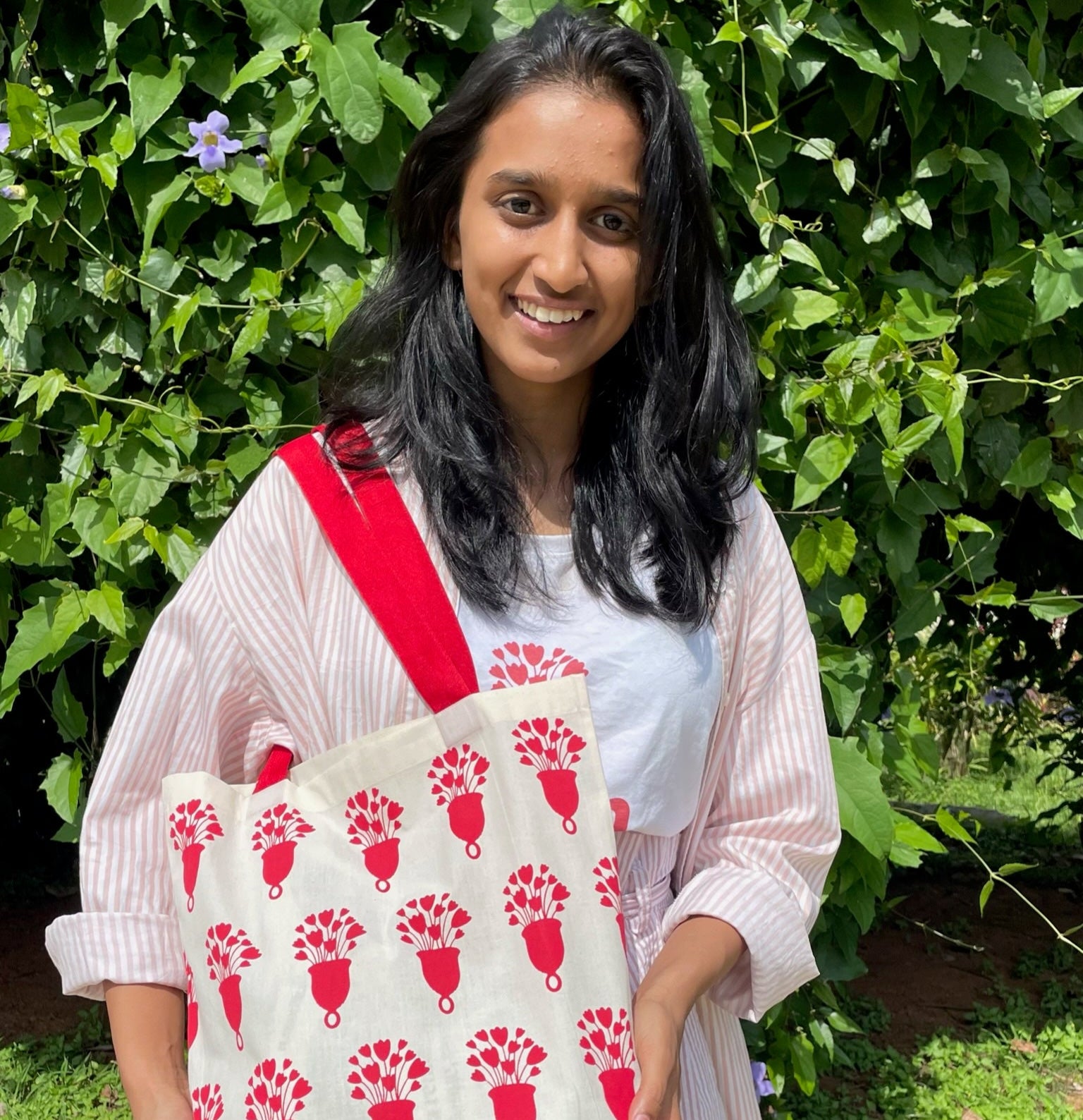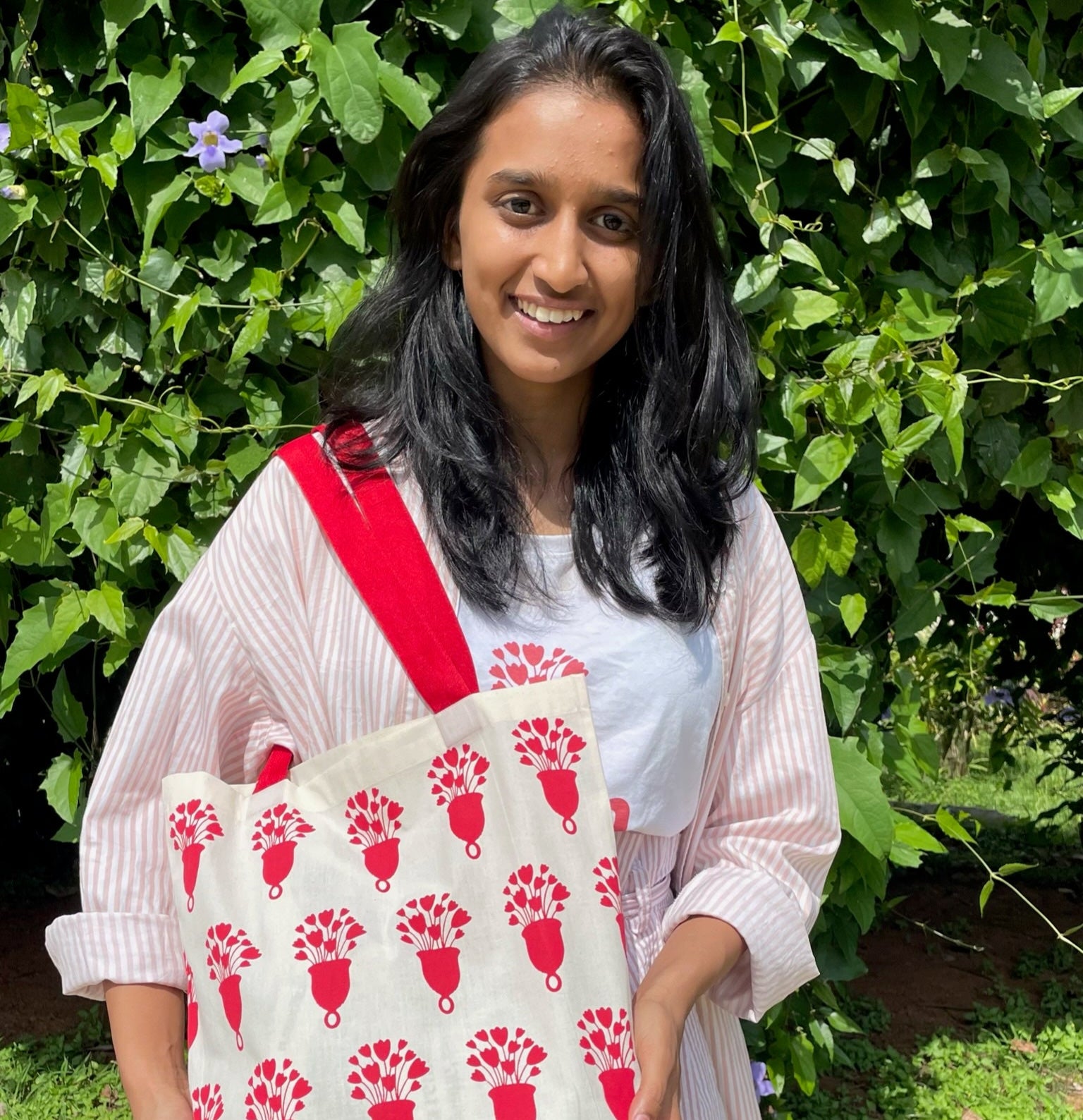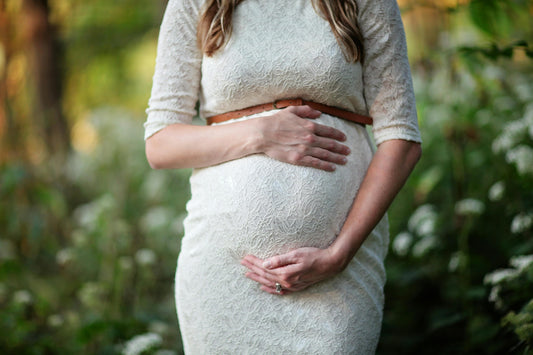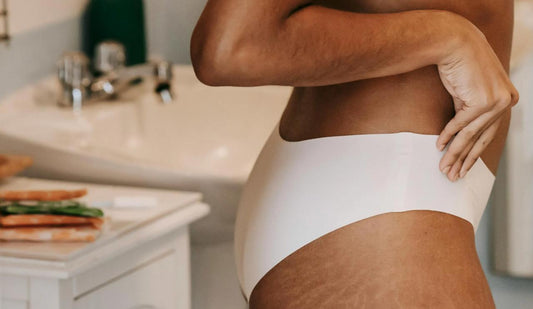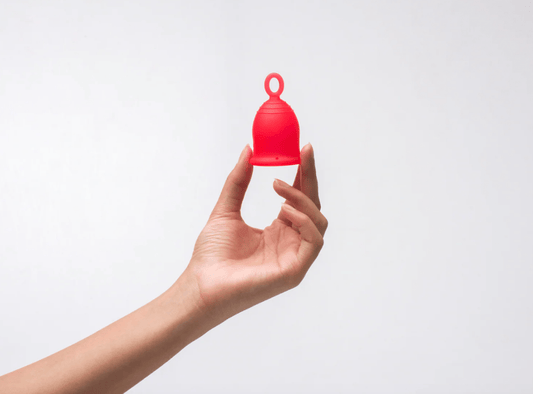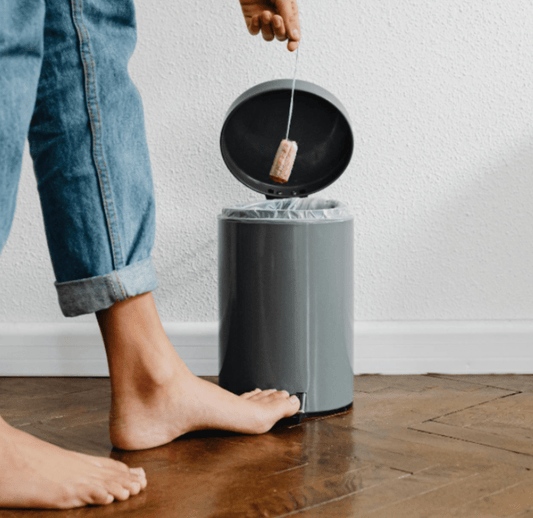 We’re excited to highlight that Asan was featured by Vogue India, where Asan founder and CEO Ira Guha sat down with writer Gayatri Rangachari Shah to talk about the vision, mission, and journey of creating the Asan cup, currently recognized as one of the world’s highest quality menstrual cup.
We’re excited to highlight that Asan was featured by Vogue India, where Asan founder and CEO Ira Guha sat down with writer Gayatri Rangachari Shah to talk about the vision, mission, and journey of creating the Asan cup, currently recognized as one of the world’s highest quality menstrual cup.
The article not only delves into the benefits of the Asan cup as an affordable, sustainable, and safe period product, but also shines a spotlight on our brand as a social enterprise. Asan’s goal of ending period poverty comes from our mission to make the best quality period care accessible to those who need it the most.
Read the Vogue article below or click here to read it on their website.
“Anything you can do when you’re not on your period you can do with the Asan cup when you have your period,” declares Ira Guha, the founder and CEO of a menstrual cup company that hopes to revolutionise the sanitary products industry. Five years ago, the 28-year-old was home from London, visiting her parents in Bengaluru, when she learned that one of the family’s household staff was suffering from rashes and a urinary tract infection from using cheap sanitary towels. Guha was shocked. An early adopter of menstrual cups, she showed one to the staffer, asking if she would try it out. “She literally took to it immediately, so much so that she then asked me for some for her sister and nieces,” recalls Guha. Soon she was sending cups for various domestic workers she knew—at that time, these cups cost $50 apiece. Realising their growing popularity amongst the low-income women she was interacting within India, four years ago, Guha, then a student at Harvard University’s Kennedy School, began exploring the idea of devising a state-of-the-art menstrual cup. The result: the Asan (as in easy) Cup.
Affordable, Sustainable, Safe
 Menstrual cups, for those who don’t know, are an insertable period device. While the earliest cups were invented in the early 20th century, their popularity hasn’t caught even a century later. Guha wants to change that. The Asan cup, which retails for Rs 1,800, lasts for 10 years. For every cup bought, one is donated to a needy woman in India, similar to models pursued by Toms shoes or Warby Parker for eyeglasses. Asan aims to provide women an affordable, sustainable, safe, unobtrusive menstrual hygiene product. Guha argues that the price is reasonable given “it’s a one-time purchase, which we calculated based on the medical grade silicone used, the same material in stents and breast implants. We want to treat the Asan cup as a medical device—and we work with international manufacturers that have certification.”
Menstrual cups, for those who don’t know, are an insertable period device. While the earliest cups were invented in the early 20th century, their popularity hasn’t caught even a century later. Guha wants to change that. The Asan cup, which retails for Rs 1,800, lasts for 10 years. For every cup bought, one is donated to a needy woman in India, similar to models pursued by Toms shoes or Warby Parker for eyeglasses. Asan aims to provide women an affordable, sustainable, safe, unobtrusive menstrual hygiene product. Guha argues that the price is reasonable given “it’s a one-time purchase, which we calculated based on the medical grade silicone used, the same material in stents and breast implants. We want to treat the Asan cup as a medical device—and we work with international manufacturers that have certification.”
Guha’s idea took two years of research and development. She received help from a Harvard colleague—an Ecuadorian woman engineer named Daniela Teran. The product underwent five iterations, based on trials with 100 women across various income levels in India and the West. The cup is designed for easy removal, and Guha says it doesn’t stain, discolour or leak. It can be worn for 12 hours straight and she cites the examples of triathletes, professional dancers, and even a Bengaluru school sports team using the cup.
Alarmingly, India has poor regulation over what goes into sanitary pads and tampons. In fact, a 2017 article in Mint revealed that India’s sanitary pads are tested based on standards that had not been revisited in 40 years! “A sanitary pad is mainly plastic so it contains dioxins, pesticides, dyes, and toxic materials,” Guha explains. Not only are they not good for women’s bodies, they are also environmentally disastrous. She notes that “every year India sends 12.3 billion plastic sanitary pads to landfills, and these products don’t biodegrade for at least 500 years. Every single pad you’ve ever used is currently sitting in a landfill. In villages, where waste management is an issue, women burn the pads. That emits toxic fumes.”
Bridging the gap
 The social entrepreneur didn’t set out to shake up a market segment that is viewed with stigma. She grew up in Bengaluru, went to Cambridge University, and worked on digital marketing at consulting major Accenture, before landing at Harvard. But she grew up with a strong social conscience. As a competitive basketball player who represented Karnataka state, Guha spent every summer living in different parts of India, from Bhilai in Chattisgarh, to Mumbai’s Nagpada area. Her teammates came from different backgrounds—some, she says, were daughters of construction workers—but what they shared in common was the need for safe hygienic sanitary products. “I still have memories of how some of us could afford pads and some couldn’t. For those who could, there were never dustbins so you had to carry around used pads till you found a way to throw them away. That was very early exposure to the inequalities we face in India.”
The social entrepreneur didn’t set out to shake up a market segment that is viewed with stigma. She grew up in Bengaluru, went to Cambridge University, and worked on digital marketing at consulting major Accenture, before landing at Harvard. But she grew up with a strong social conscience. As a competitive basketball player who represented Karnataka state, Guha spent every summer living in different parts of India, from Bhilai in Chattisgarh, to Mumbai’s Nagpada area. Her teammates came from different backgrounds—some, she says, were daughters of construction workers—but what they shared in common was the need for safe hygienic sanitary products. “I still have memories of how some of us could afford pads and some couldn’t. For those who could, there were never dustbins so you had to carry around used pads till you found a way to throw them away. That was very early exposure to the inequalities we face in India.”
Was it difficult to pursue a fledgling start-up idea, building a product which few women have adopted globally, let alone in India where we greatly lag in sanitary product usage? Guha commends her mother for giving her the gumption to take a risky plunge. The daughter of Sujata Keshavan, who founded India’s first graphic design firm Ray + Keshavan, and who now runs Varana, the luxe clothing label, and writer Ramachandra Guha, she explains that she came from a very interesting house where the mother was the breadwinner and an entrepreneur. It made her think, “OK I am doing this interesting project at Harvard and maybe we don’t have a lot of money but we have a small grant,” so she didn’t hesitate. Asan launched in India with a small team, including co-founder and COO Anuradha Mahadevan, a former Ernst & Young consultant and engineer. Boot-strapped and funded via a prestigious GBP 20,000 entrepreneurship prize from Guha’s undergraduate alma mater King’s College, Cambridge, and a $7,000 grant from Harvard University, Asan is in early talks to raise venture capital funding.
The magical cup
 Most start-ups face uphill battles; ones selling menstrual cups face even bigger ones. Surmounting attitudes towards insertable sanitary products in a country like India are massive. Guha recognises that it will take time. But she’s surprised at the suspicions around the company’s donation programme. “We get a number of queries from women saying ‘ you’re lying, there’s no proof that the cups you are donating will be used,’ or ‘I am educated and I won’t use it, so why would a poor person insert it. The truth is that poor working women are super open to it because they just don’t have a good solution. If you’re using rags that are impossible to clean every day and you’re embarrassed to hang them out to dry and or you can’t walk because you’re so uncomfortable, of course you’re willing to try something new. Breaking down stereotypes and battling these misconceptions is a huge challenge.” In fact, the Asan cup is referred to as a ‘magical cup’ by women in villages in Karnataka where the company has been running a six-month pilot programme. It partners with two non-profits closely aligned with women’s health, SEWA and Belaku Trust.
Most start-ups face uphill battles; ones selling menstrual cups face even bigger ones. Surmounting attitudes towards insertable sanitary products in a country like India are massive. Guha recognises that it will take time. But she’s surprised at the suspicions around the company’s donation programme. “We get a number of queries from women saying ‘ you’re lying, there’s no proof that the cups you are donating will be used,’ or ‘I am educated and I won’t use it, so why would a poor person insert it. The truth is that poor working women are super open to it because they just don’t have a good solution. If you’re using rags that are impossible to clean every day and you’re embarrassed to hang them out to dry and or you can’t walk because you’re so uncomfortable, of course you’re willing to try something new. Breaking down stereotypes and battling these misconceptions is a huge challenge.” In fact, the Asan cup is referred to as a ‘magical cup’ by women in villages in Karnataka where the company has been running a six-month pilot programme. It partners with two non-profits closely aligned with women’s health, SEWA and Belaku Trust.
Guha’s earliest mentors are an unlikely duo of men, who have gone on to support her all throughout. Stuart Lyons, who funds the King’s College prize, is a well-known UK business leader, and does two-hour Zoom calls with Guha on numerous issues. In Bengaluru, former Morgan Stanley India CEO Narayan Ramachandran, who runs social impact incubator InKlude Labs, met Guha at a talk in 2018, and when she told him what she was working on, he turned to her and said, “Oh my god I am obsessed with menstrual cups!’ It was almost like he was waiting to support someone who was pursuing this!” Asan now works out of InKlude Labs, benefitting from its network.
Guha’s goal is to eradicate period poverty—the inequality that arises when women don’t have the resources for a safe period every month. “Women who can’t afford sanitary products use unsafe methods, which, in turn, stops them from going to school or work. They are 70 per cent more likely to have reproductive or UTI infections. Suffering from period poverty over years can lead to worse outcomes in terms of economic opportunity.” With her belief that the Asan cup is the best period product in the world, Guha expects to reduce period poverty—one cup at a time.
Ira Guha’s mantras:
- Go with your gut.
- You don’t have to aim for mass and scale, but do aim for the highest possible quality.
- Always talk about your work, even if it’s in period health, because you never know who you may meet who will be interested.
